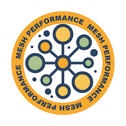What Happens When Your Liver Gets Overloaded With Fat: Lipotoxicity and the Damage It Causes
When too much fat builds up in liver cells, it’s not harmless. Once the liver’s ability to store, burn, or export fat gets overwhelmed, toxic fat by-products start damaging the very cells they live in. This is called lipotoxicity, and it’s a key player in the progression from simple fat build-up (MASL) to inflammation and scarring (MASH).
Bally Parekh MSc RD
5/28/20253 min read
Most people think the worst thing that can happen to your liver is having to deal with a hangover. Sadly, there’s a lot more to worry about. When your liver becomes a fat storage unit it didn’t ask for, things inside your cells start to unravel , and fast.
It’s like trying to shove five suitcases into a two-seat convertible. Something’s going to give, and it won’t be pretty.
Why Simple Fat Buildup Isn’t So Simple
When too much fat builds up in liver cells, it’s not harmless. Once the liver’s ability to store, burn, or export fat gets overwhelmed, toxic fat by-products start damaging the very cells they live in. This is called lipotoxicity, and it’s a key player in the progression from simple fat build-up (MASL) to inflammation and scarring (MASH).
The damage doesn’t stop there. Lipotoxicity sets off a chain reaction inside your liver’s control centres , the mitochondria and endoplasmic reticulum (ER) , fuelling even more damage.
The Vicious Cycle: Fat, Stress, and Damage
Oxidative Stress: The Internal Fire
Your liver cells naturally produce reactive molecules, but in MASLD, with all that extra fat around, these molecules (called reactive oxygen species or ROS) skyrocket.
When your liver’s antioxidant defences can’t keep up, these ROS start damaging cell structures, proteins, and DNA. It’s like lighting a match in a room filled with petrol fumes.
Mitochondrial Dysfunction: The Power Stations Break Down
Mitochondria are your liver’s energy factories and key for fat-burning. In MASLD, they start breaking down under pressure:
Energy production drops
Fat burning (oxidation) slows
They produce even more ROS
Worse still, damaged mitochondria leak toxic molecules, making things even messier.
Endoplasmic Reticulum (ER) Stress: The Protein Factory Meltdown
The ER handles protein folding and fat production. When there’s too much fat and too much work, the ER gets overwhelmed and starts producing faulty proteins. It launches an emergency response, but if the stress continues, the ER essentially gives up and triggers cell death pathways.
It’s like a restaurant kitchen in full meltdown during dinner service, with the chef shouting, “We’re done!” and closing early.
How Nutrition Can Break This Cycle
The good news? Nutrition is one of the most powerful ways to intervene:
Reduce added sugars and processed fats that fuel toxic fat production
Eat more antioxidants (like colourful veg, nuts, seeds, herbs, and spices) to support your liver’s defence systems
Include nutrients like choline, vitamin E, and omega-3 fats to help the liver export fat and protect mitochondria
Focus on whole, nutrient-dense foods that ease the pressure on fat metabolism pathways
In early stages, this can halt and even reverse damage. In later stages, targeted support with specific nutrients and antioxidants becomes even more crucial.
Summary
When your liver’s fat-handling systems break down, it’s not just about having a ‘fatty liver’. It’s about lipotoxicity, oxidative stress, and cellular chaos that can spiral into serious disease.
And let’s be honest , your liver deserves better than being treated like a fat storage cupboard for leftovers you didn’t even enjoy.
If you’re ready to take back control, find out how to protect your liver, cut the toxic fat load, and build a nutrition plan that actually works.
How can I help you?
If you’d like expert, tailored support, book a consultation today at The Liver Nutrition Clinic. I’m Bally Parekh, MSc RD, Specialist Liver Dietitian, and I’d love to help you stay stronger for longer.
How can we help
At MESH Performance, Specialist Liver Dietitian Bally Parekh MSc. RD provides evidence-based nutrition support for those living with liver conditions. Our approach focuses on:
Sarcopenia and frailty assessments
Maintaining and rebuilding muscle to reduce the risk of frailty and malnutrition
Implementing targeted dietary strategies to support overall well-being and quality of life
Optimising nutrition to prevent deficiencies and support energy level
Managing a liver condition comes with challenges, but the right nutrition can make a real difference. We're here to provide practical support—let’s get started.


Our Instagram
Get in touch
info@mesh-performance.com



